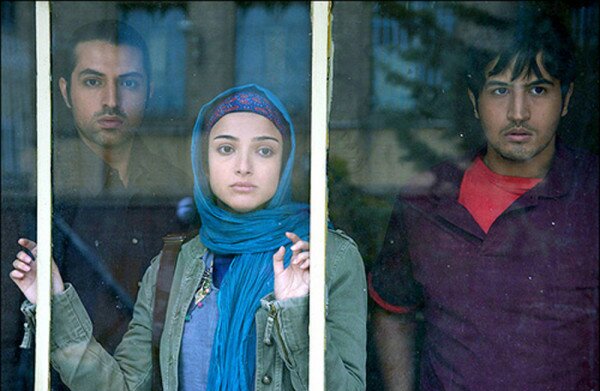Bending The Rules, written and directed by Behnam Behzadi, traces the tense, final preparations of a young, mostly university age theatre group in Iran, as they prepare to travel and present one of their plays at an overseas festival.
Most of the group have either lied to their parents about their plans, sometimes concocting elaborate stories and even fake phone calls to over their tracks, or they been ostracised by their families, as in the case of the play’s director, Amir (Ashkan Khatibi). But, one of the cast, the bold and talented star of the production, Shahrzad (Neda Jebraeili) decides to try and be honest with her father (Amir Jafari), especially once she realises he has taken her passport.
What ensues is a tense, spiralling, fast paced drama where the motivations, hopes and fears of each member of the group surface as their plans (and real reasons for embarking on this trip) come to the surface and are put at risk.
Bending The Rules is an elaborately crafted piece of work. Apart from a small number of location changes, the camera seldom cuts away from the action and some of the scenes are very long, with fluid camera movements drawing us in and out of conversations, as the cast move in a very natural and realistic way.
Some will want to immediately draw comparisons between Bending The Rules and A Separation, the winner of the Academy Award for Best Foreign Language Film in 2012. While both are different films, they share some similarities as thoughtful studies in the implications of familial conflict in modern Iran.
The conflict in Bending The Rules is cross generational, which in this story means the generation that lived through the Islamic Revolution (Shahrzad’s father et al), with all its religious, political and cultural implications and the theatre group’s own post-revolutionary generation, steeped in social media and dreaming of expanded cultural (and geographic) horizons.
Shahrzad wants to respect her father, to value the sacrifices he has made for her, but she also wants to make her own choices, to have some measure of independence. Her father struggles to understand her priorities and battles his own somewhat competing impulses to be authoritative, protective and caring. At times the two seem almost unable to talk to each other or find a common language.
The one member of the group whose family is at peace with her theatrical ambitions is Parisa (Baharan BaniAhmadi). In explaining this she says, somewhat enigmatically, that her father has is “young at heart,” though one wonders if he relative wealth and urbane sensibility (he drives a BMW 4WD & dresses wears the most western attire of anyone in the film) might have something to do with it.
Bending The Rules is an expertly crafted piece of cinema that flows as effortlessly as a dinner conversation amongst friends. It’s a film that speaks, rather than shouts it’s points and maintains a steady pace and dramatic intent throughout. And, it leaves you a haunting sense of concern for the characters and the cultural moment they find themselves trapped within.
